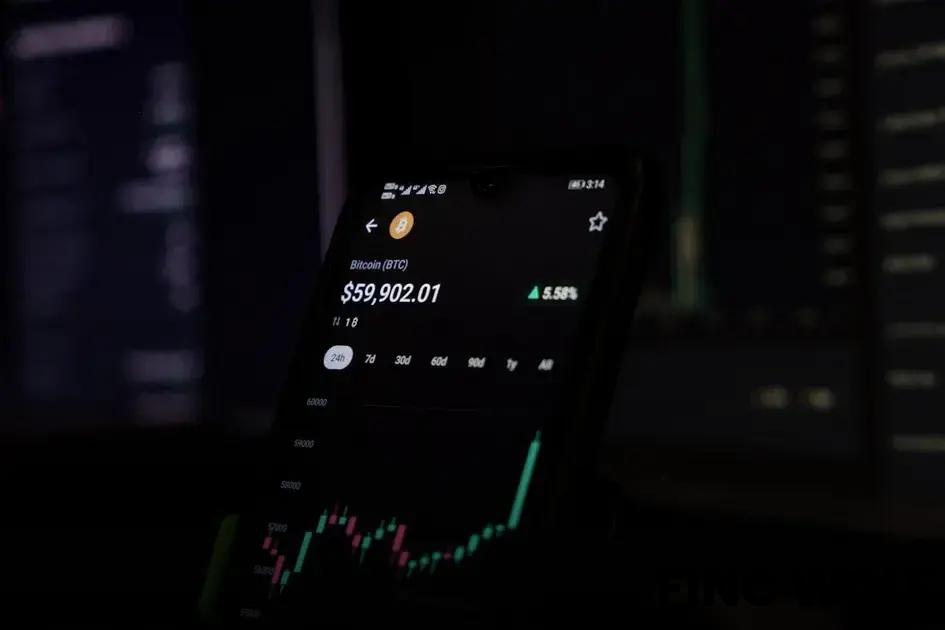The impact of political uncertainty on global markets cannot be overstated. As investors and businesses navigate the turbulent waters of political events, understanding their potential effects is crucial for making informed decisions. This article explores key political uncertainties, historical market impacts, strategic risk mitigation, and expert insights into future trends. Stay informed and ready to adapt to the ever-changing market landscape.
Understanding Political Uncertainty
Political uncertainty can significantly influence market stability across the globe. Often, uncertainties arise from changes in government policies, elections, and geopolitical tensions. Investors may find it challenging to predict future trends when political situations are unclear or rapidly changing.
The impact on global markets is multifaceted. Policy decisions can affect trade agreements, tariffs, and regulations that influence market sectors differently. For example, technology and energy sectors might respond variably to new regulations, as these can alter cost structures and market demands.
Investment strategies must adapt swiftly to navigate such uncertainties. Diversifying portfolios and keeping abreast of political developments become essential. Fluctuations in currency exchange rates due to political events can further complicate market dynamics. Political instability might lead to capital flight from affected countries to more stable investment environments.
It’s crucial for investors to consider the broader implications of political decisions on economic policies. Consistent monitoring of political news and leveraging expert analysis can aid in maintaining a robust investment strategy amidst the unpredictability of political shifts. Understanding these dynamics allows market participants to better prepare and adjust their approaches to maximize returns and mitigate risks.
Historical Effects on Global Markets

The relationship between political events and global markets has been observed for centuries, shaping economies and altering the course of trade and investment. Throughout history, various political upheavals, wars, and policy changes have led to significant fluctuations in market performance. For instance, during the early 20th century, the world wars caused unprecedented disruptions, affecting global supply chains and altering the financial landscapes across continents.
The Cold War era introduced a different set of challenges with its geopolitical tensions and economic embargoes, which had far-reaching effects on trade relations and market dynamics. More recently, the global financial crisis of 2008, triggered by lax regulations and risky banking practices, was exacerbated by political indecision and conflicting policies among leading economies.
The Brexit decision is another pertinent example, where political decisions have had a profound immediate and long-lasting impact on markets, leading to volatility in currency values and trade policies. Such historical instances underscore the volatile nature of markets in response to political uncertainty, prompting investors to continuously adapt their strategies amidst shifting political and economic landscapes.
In understanding these historical effects, stakeholders can better anticipate and mitigate potential risks, ensuring a more resilient approach to future political shifts. The past teaches us valuable lessons about the importance of policy stability and global cooperation in maintaining market confidence.
Key Political Events Shaping Markets
One of the major political events influencing global markets is elections. When elections are approaching, markets often experience heightened volatility. Investors tend to adjust their portfolios based on the potential economic policies that new leadership might implement. For example, elections in major economies like the United States, China, and members of the European Union can lead to significant market movements.
Another
key factor
is geopolitical conflicts. Tensions between countries, whether due to military actions, trade negotiations, or diplomatic stand-offs, can create uncertainty in markets. For instance, ongoing trade wars often result in fluctuating stock prices and changes in commodity values, like oil and gold.
Additionally, policy changes at a national or international level have substantial impacts. Regulatory adjustments and changes in taxation laws can directly affect company profits, investor confidence, and ultimately market behavior. Similarly, international treaties or dissolutions of agreements have repercussions for international trade conditions.
Brexit is a prime example of a political decision with far-reaching consequences for both the United Kingdom and the European Union. This event forced businesses and investors to reassess strategies due to potential changes in regulation, tariffs, and market access.
Lastly, international summits and bilateral meetings often shape market sentiments. Outcomes from such events can promise stability and growth prospects or, conversely, increase fear and uncertainty, causing markets to react promptly.
Strategies to Mitigate Market Risks

In today’s volatile global markets influenced by political uncertainty, adopting robust strategies is crucial to mitigate risks effectively. Market participants need to diversify investments, ensuring that portfolios are not over-reliant on a single sector or geographic location. Diversification can help cushion the impact of unexpected political events in specific regions.
Risk Assessment Tools are essential. Investors should leverage advanced data analytics and AI-driven platforms to forecast potential market shifts caused by political events. These tools can provide real-time insights, promoting informed decision-making.
Moreover, hedging strategies, such as options and futures, play a vital role in managing financial exposure. By using derivatives, investors can protect their portfolios from adverse market movements triggered by political instability.
Global Regulatory Awareness is another key factor. Staying informed about international regulatory changes enables market participants to adjust their strategies proactively. Regulations can vary significantly across countries, and understanding them can prevent legal and financial pitfalls.
Investors should also engage in active communication with financial advisors and attend workshops or seminars to update their market knowledge continuously. Networking with industry experts provides diverse perspectives and innovative strategies to counteract market risks.
Expert Opinions on Future Trends
Several experts provide insight into how political uncertainty could shape future global market trends. Dr. Jane Smith, a well-known economist, argues that ongoing geopolitical tensions might lead to increased volatility in currency markets. This, she suggests, could result in unpredictable shifts that investors need to watch closely.
Impact on Emerging Markets
Professor John Doe highlights emerging markets, emphasizing that they might experience both challenges and opportunities due to political changes. According to him, nations with robust political systems will likely attract more foreign investment, even amidst uncertainty.
Furthermore, Lisa Chang, a market analyst, suggests that trade policies will be a major influence going forward. She notes that changes in tariffs and trade agreements could lead to both disruptions and openings in the global supply chain, affecting commodity prices worldwide.
Technological Influence
Dr. Carlos Rivera speaks to the role of technology in this landscape, emphasizing that advancements in fintech can enable quicker responses to political events. He believes this capability will allow markets to adapt more rapidly, potentially stabilizing prices despite political shifts.
Overall, these expert opinions provide a detailed exploration of the various factors that could dictate market behavior in times of political uncertainty. They underline the significance of staying informed and adaptable in navigating the ever-evolving global economic environment.
Conclusion: Embracing Change in Markets

Global markets continuously face political uncertainty, which demands adaptability from both investors and businesses. As geopolitical tensions rise or fall, the markets react, often with significant volatility. The ability to adapt becomes crucial as new political landscapes shape economic outlooks. Investors need to monitor these developments closely, weighing their strategies against potential risks.
Understanding market dynamics in the context of geopolitical shifts helps businesses and investors stay prepared. Over the years, markets have seen various influences from political decisions, showing patterns and trends that can provide insights into potential future scenarios.
Key strategies
include diversifying portfolios to buffer against unpredictable shifts, which remains a cornerstone in mitigating risks associated with political uncertainties.
Insights from experts suggest a proactive approach, focusing on the long-term impacts rather than the immediate reactions of markets to political changes. As global markets evolve, embracing these changes by staying informed and adaptable can lead to more resilient market engagements.




